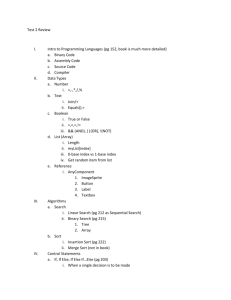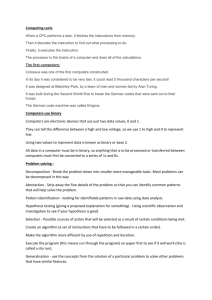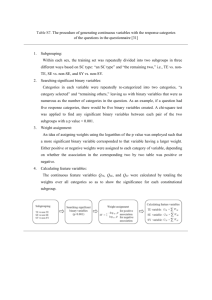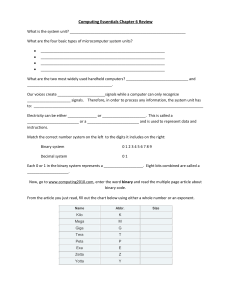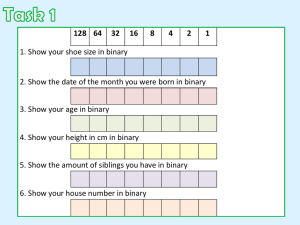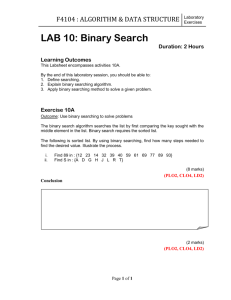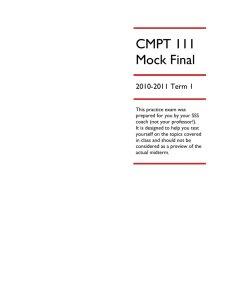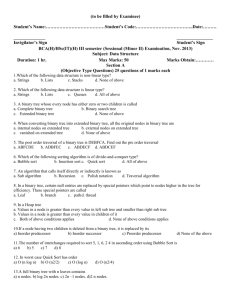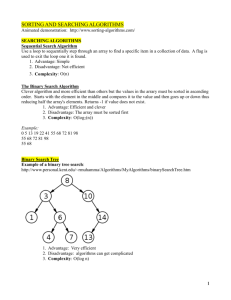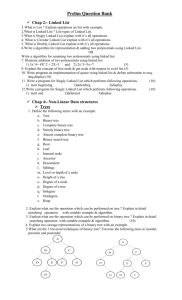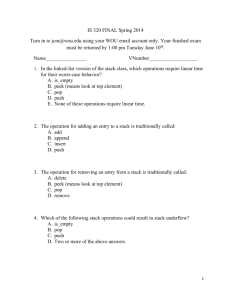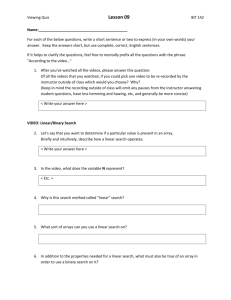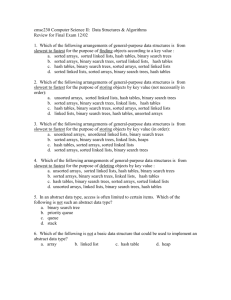Chapter 8 Searching and Sorting Arrays 8.1 Multiple Choice
advertisement
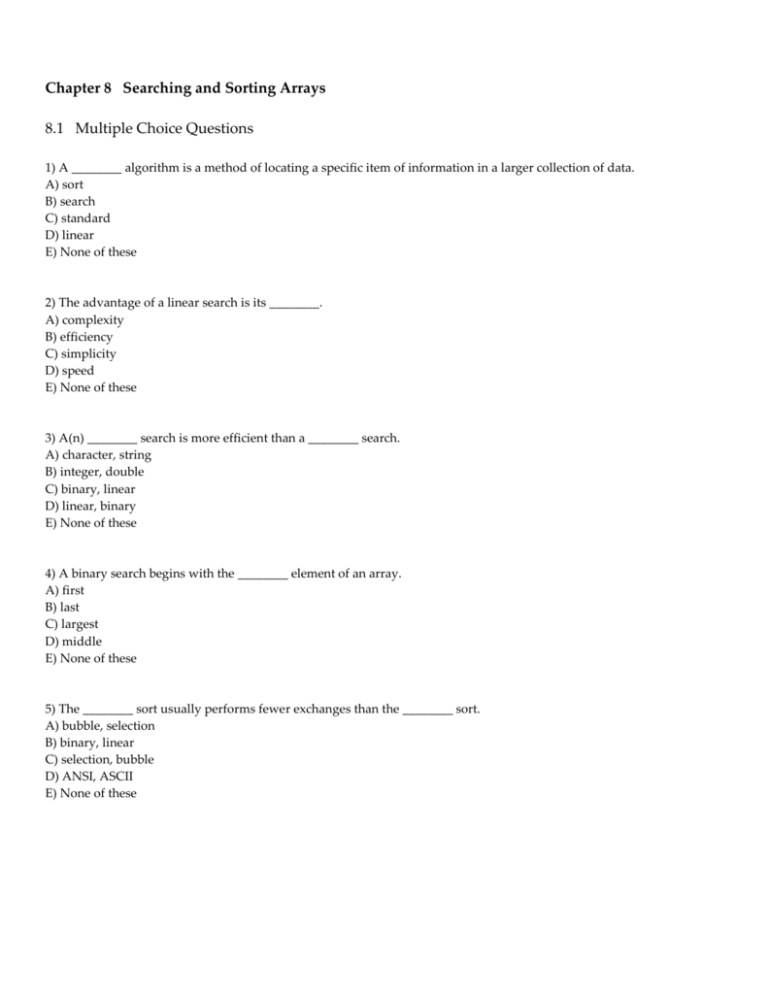
Chapter 8 Searching and Sorting Arrays 8.1 Multiple Choice Questions 1) A ________ algorithm is a method of locating a specific item of information in a larger collection of data. A) sort B) search C) standard D) linear E) None of these 2) The advantage of a linear search is its ________. A) complexity B) efficiency C) simplicity D) speed E) None of these 3) A(n) ________ search is more efficient than a ________ search. A) character, string B) integer, double C) binary, linear D) linear, binary E) None of these 4) A binary search begins with the ________ element of an array. A) first B) last C) largest D) middle E) None of these 5) The ________ sort usually performs fewer exchanges than the ________ sort. A) bubble, selection B) binary, linear C) selection, bubble D) ANSI, ASCII E) None of these 6) Array elements must be ________ before a binary search can be performed. A) summed B) set to zero C) sorted D) positive numbers E) None of these 7) Using a linear search to find a value that is stored in the last element of an array of 20,000 elements, ________ element(s) must be compared. A) 20,000 B) only the first C) only half D) 2000 E) None of these 8) A(n) ________ search uses a loop to sequentially step through an array. A) binary B) unary C) linear D) relative E) None of these 9) Data that is sorted in ascending order is ordered ________. A) from lowest to highest value B) from highest to lowest value C) always with a binary sort algorithm D) always with a linear sort algorithm E) None of these 10) Regardless of the algorithm being used, a search through an array is always performed ________. A) from lowest to highest element B) from highest to lowest element C) beginning with the middle element D) using a binary search E) None of these 11) When an array is sorted from highest to lowest, it is said to be in ________ order. A) reverse B) forward C) descending D) ascending E) None of these 12) The ________ is adequate for searching through small arrays. A) binary search B) linear search C) unary search D) bubble sort E) None of these 13) ________ algorithms are used to arrange random data into some order. A) Standard search B) Linear C) Sorting D) Binary search E) None of these 8.2 True/False Questions 1) True/False: The bubble sort is an easy way to arrange data into ascending order, but it cannot arrange data into descending order. 2) True/False: The number of comparisons made by a binary search is expressed in powers of two. 3) True/False: In the average case, an item is just as likely to be found near the beginning of an array as near the end. 4) True/False: A linear search can only be implemented with integer values. 5) True/False: Before you can perform a selection sort, the data must be stored in ascending order. 6) True/False: Before you can perform a bubble sort, the data must be stored in descending order. 7) True/False: Using a binary search, you are more likely to find an item than if you use a linear search.
